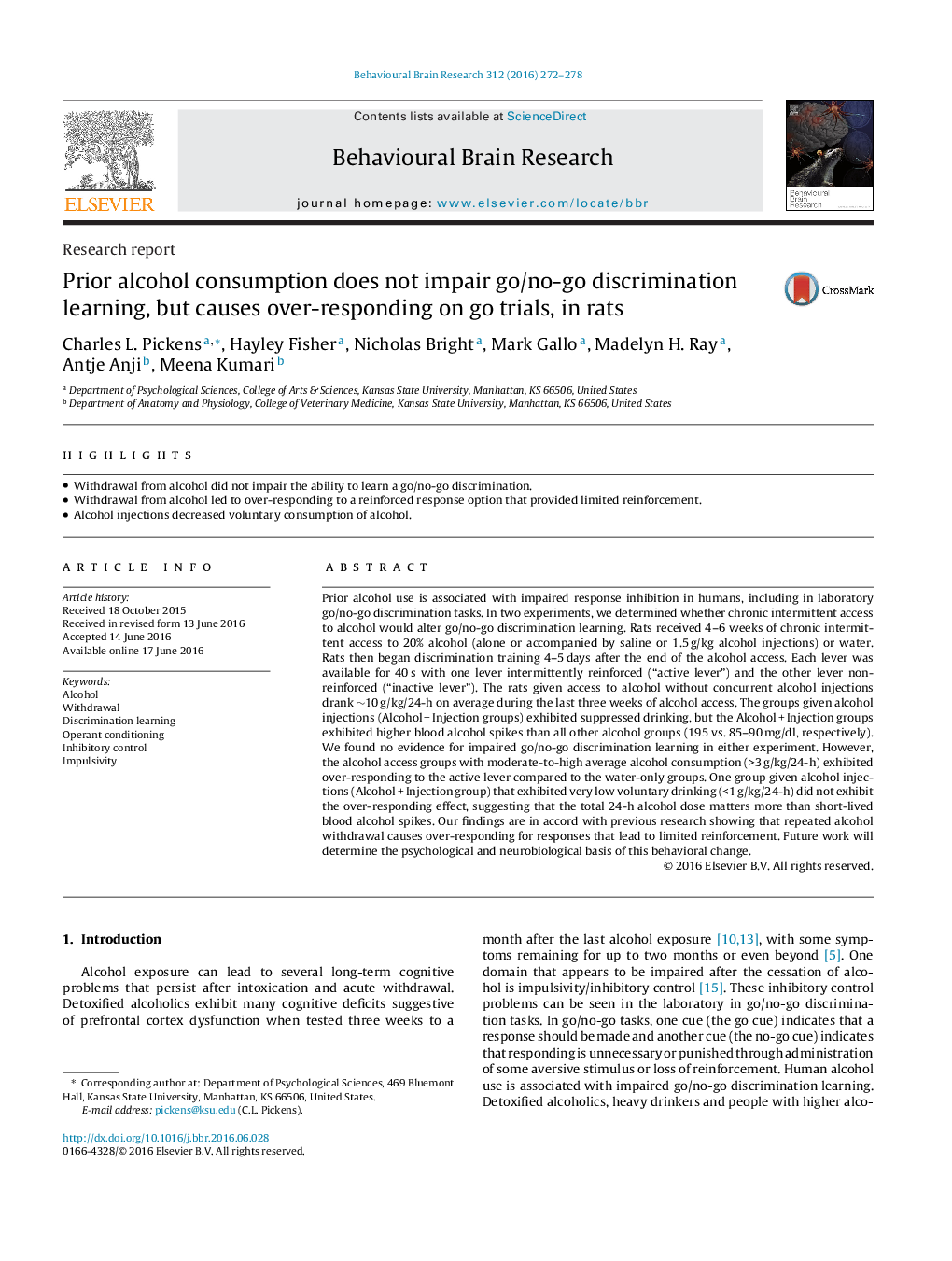| کد مقاله | کد نشریه | سال انتشار | مقاله انگلیسی | نسخه تمام متن |
|---|---|---|---|---|
| 4312079 | 1612921 | 2016 | 7 صفحه PDF | دانلود رایگان |
• Withdrawal from alcohol did not impair the ability to learn a go/no-go discrimination.
• Withdrawal from alcohol led to over-responding to a reinforced response option that provided limited reinforcement.
• Alcohol injections decreased voluntary consumption of alcohol.
Prior alcohol use is associated with impaired response inhibition in humans, including in laboratory go/no-go discrimination tasks. In two experiments, we determined whether chronic intermittent access to alcohol would alter go/no-go discrimination learning. Rats received 4–6 weeks of chronic intermittent access to 20% alcohol (alone or accompanied by saline or 1.5 g/kg alcohol injections) or water. Rats then began discrimination training 4–5 days after the end of the alcohol access. Each lever was available for 40 s with one lever intermittently reinforced (“active lever”) and the other lever non-reinforced (“inactive lever”). The rats given access to alcohol without concurrent alcohol injections drank ∼10 g/kg/24-h on average during the last three weeks of alcohol access. The groups given alcohol injections (Alcohol + Injection groups) exhibited suppressed drinking, but the Alcohol + Injection groups exhibited higher blood alcohol spikes than all other alcohol groups (195 vs. 85–90 mg/dl, respectively). We found no evidence for impaired go/no-go discrimination learning in either experiment. However, the alcohol access groups with moderate-to-high average alcohol consumption (>3 g/kg/24-h) exhibited over-responding to the active lever compared to the water-only groups. One group given alcohol injections (Alcohol + Injection group) that exhibited very low voluntary drinking (<1 g/kg/24-h) did not exhibit the over-responding effect, suggesting that the total 24-h alcohol dose matters more than short-lived blood alcohol spikes. Our findings are in accord with previous research showing that repeated alcohol withdrawal causes over-responding for responses that lead to limited reinforcement. Future work will determine the psychological and neurobiological basis of this behavioral change.
Journal: Behavioural Brain Research - Volume 312, 1 October 2016, Pages 272–278
